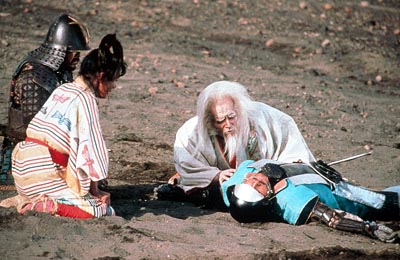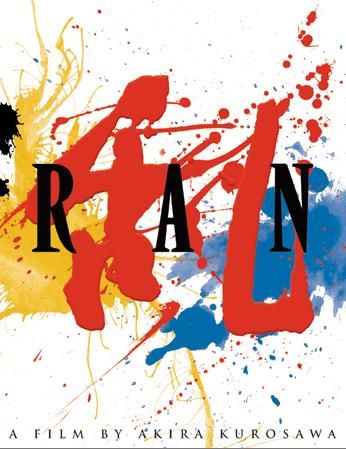
Revolution has differing connotations to a number of people, wherein one could find the usual pros and cons of a decision, but it is easy to forget the dice will not always roll for some, any, positive outcomes. In Ran, justice becomes arbitrary, at least on the surface, and I certainly thought it, along with its base King Lear, was the most nihilistic thing I’ve ever seen/read. Upon multiple readings of the play, however, a subtle gleam of auspicious light shone unto those endlessly bleak pages, and I saw that not only were all the sources of evil in the play gone, but Lear did reunite with his daughter, Cornelia, the latter of which manifested as a near-promising, yet ultimately false hope to me until I read that Bergman performed the King Lear as an ultimate reconciliation play; he saw the rejoining of Lear and Cornelia, despite all the horror surrounding, as one of the most positive aspects of humanity he’d seen. One might have a much harder time seeing these positive gaps in Ran, but I think it’s almost as applicable.
Even the father of the backstabbers is having a hard time seeing them.


What made Ran a wonderful adaptation was everything Kurosawa changes: the characterization is switched around, the fool has new, hilarious lines - more or less the best of the script, the gods no longer kill but the humans endlessly kill, even more added backstabbing, but especially a most clever change of perspective. King Lear was full of Greek references, so Kurosawa put the audience on Mount Olympus, as if we are the non-intervening gods watching omnipresent tragedy. This is also largely displaced from his earlier work in terms of ferocity of the battle scenes, whereas in Rashomon or Hidden Fortress you would be in the middle of the war but in Ran you are merely spectating, which is almost draining the way he’s done it. Coming out of a nuclear fear, the second for Japan, I also suspect Kurosawa was plainly unhappy with the way humanity was treating itself and thus I think he wanted the battle scenes to portray that.

I thought the use of colors was a brilliant way to symbolize both emotions and, presumably, nationalities. I also just want to say, before I write an essay, the fox analogy was one of the most humorously insightful monologues I’ve ever heard.
Now, questions for people who’ve read King Lear:
What do you think of the positivity of the play vs. Ran?
Do you find the changes more appropriate for a period piece?
Why wasn’t the storm more accented in Ran?
Non-partition questions:
Was the closing shot on the blind man too much to handle?
What do you think of the de-masculinization of Jiro?
Does the fool's analogy of the bird and the snake apply more to Jiro or to his father?
Personal question: Why does this not really feel like an epic even though it has all the elements of one?


